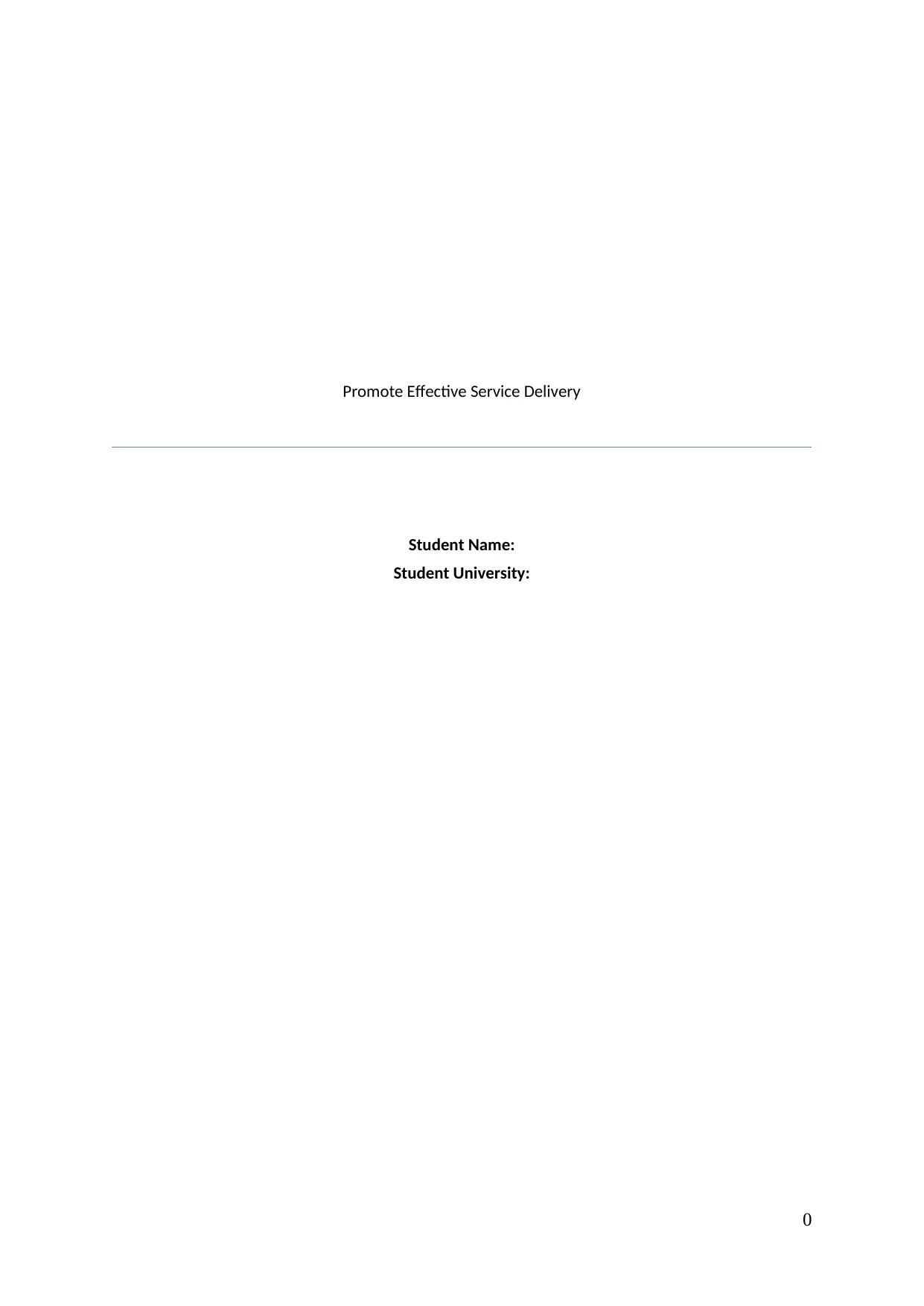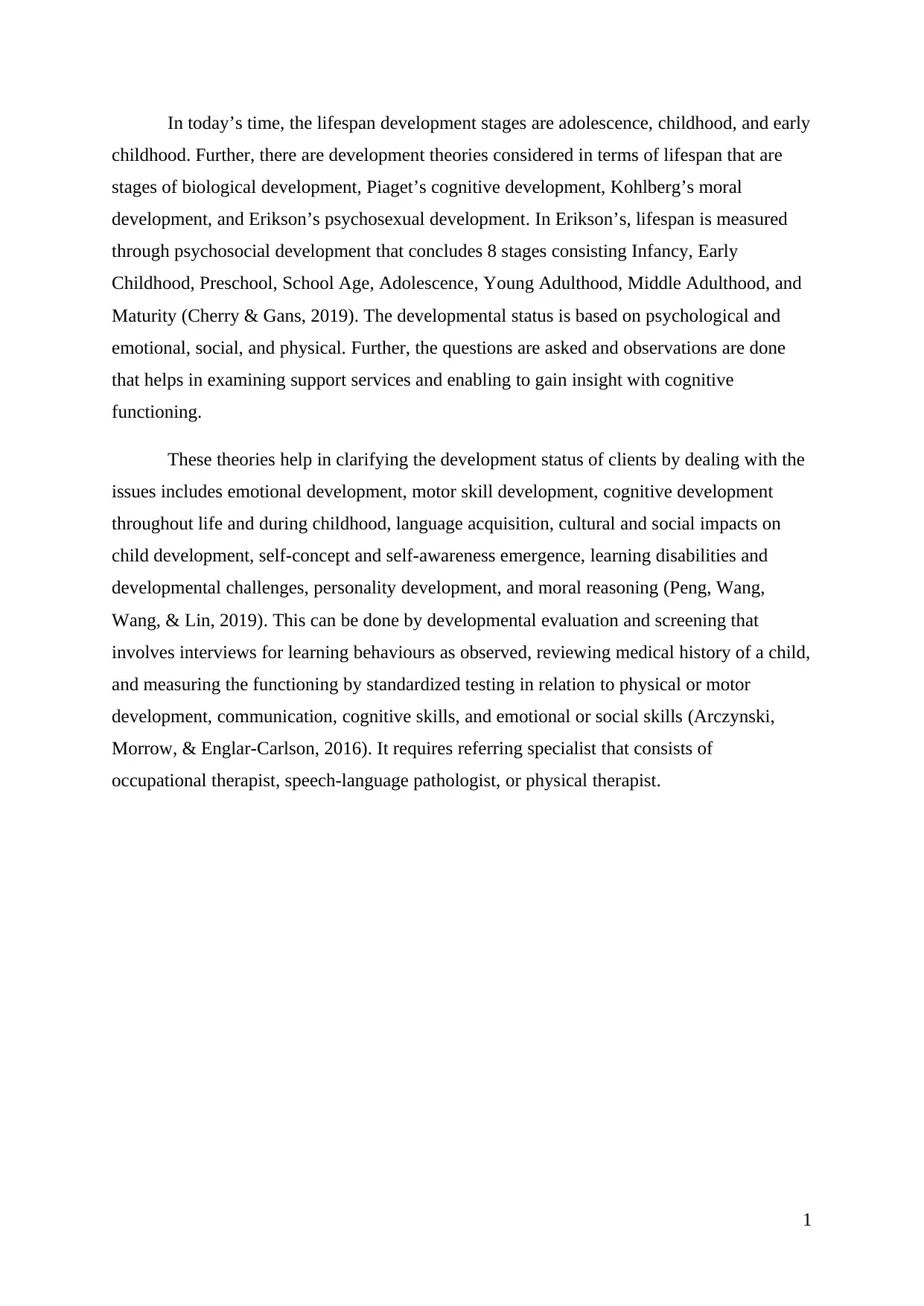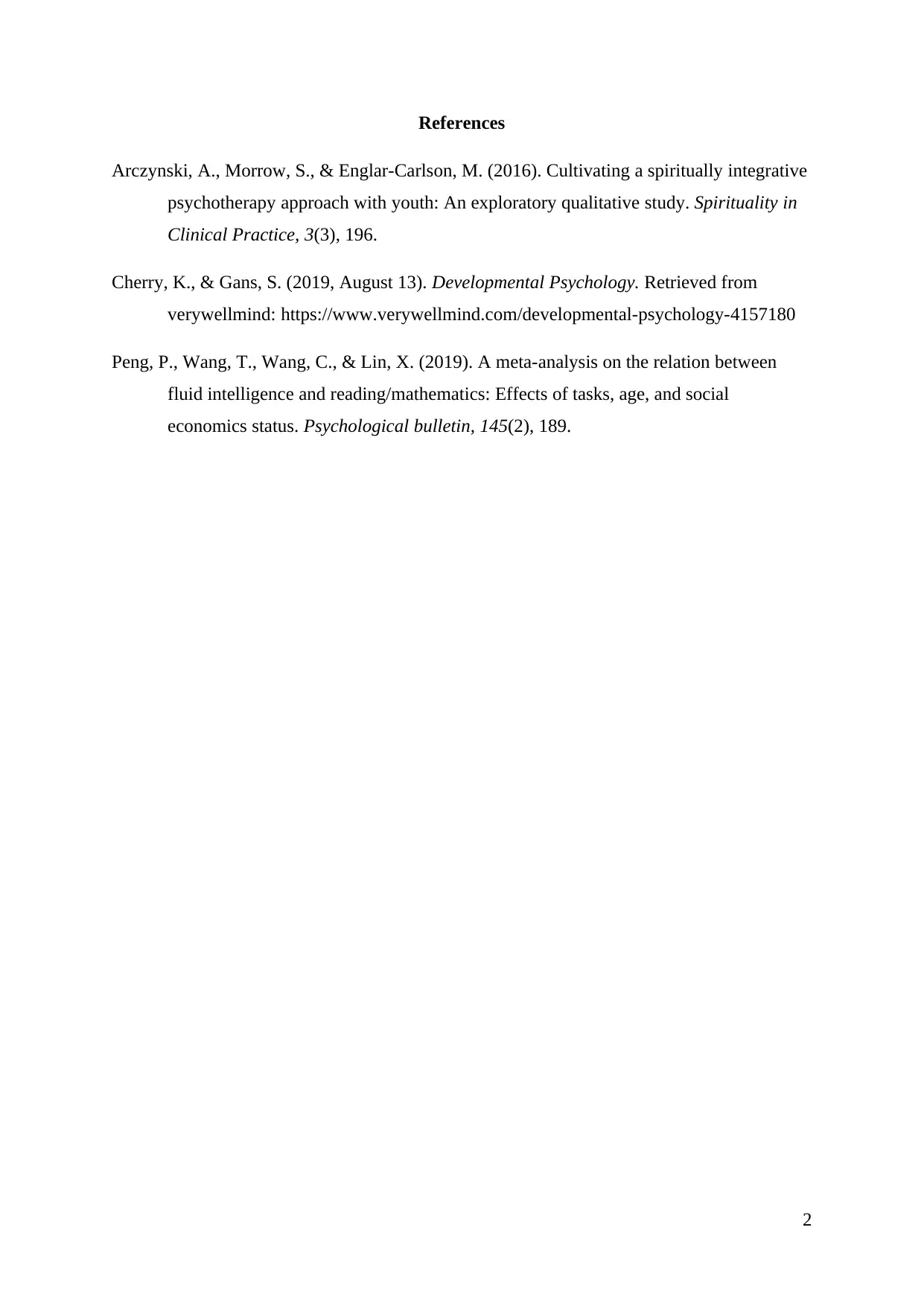Psychology: Lifespan Development and Service Delivery Evaluation
VerifiedAdded on 2022/09/05
|3
|423
|20
Homework Assignment
AI Summary
This assignment delves into the realm of developmental psychology, focusing on lifespan development and its implications for service delivery. It begins by outlining the key developmental stages, including infancy, early childhood, and adolescence, and then discusses the prominent theories such as Erikson's stages of psychosocial development, Piaget’s cognitive development, Kohlberg’s moral development and the impact of these theories on the development of the individual. The assignment emphasizes the importance of understanding psychological, emotional, social, and physical development. It also explores methods for evaluating developmental status, including interviews, medical history reviews, and standardized testing, highlighting the roles of various specialists like occupational therapists, speech-language pathologists, and physical therapists. The assignment concludes by providing a comprehensive overview of how these elements can be applied in practical scenarios.
1 out of 3









![[object Object]](/_next/static/media/star-bottom.7253800d.svg)